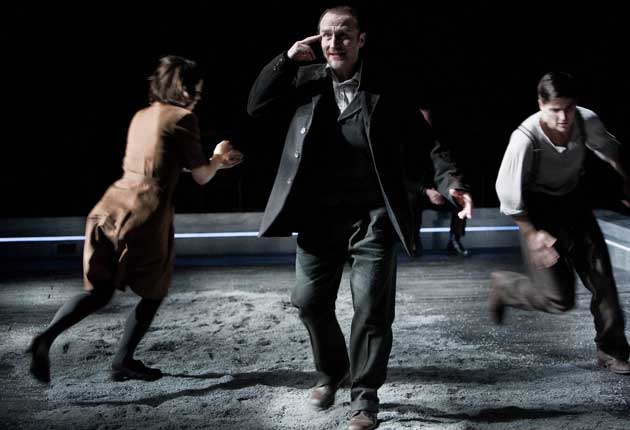Our Class, Cottesloe, London

Your support helps us to tell the story
From reproductive rights to climate change to Big Tech, The Independent is on the ground when the story is developing. Whether it's investigating the financials of Elon Musk's pro-Trump PAC or producing our latest documentary, 'The A Word', which shines a light on the American women fighting for reproductive rights, we know how important it is to parse out the facts from the messaging.
At such a critical moment in US history, we need reporters on the ground. Your donation allows us to keep sending journalists to speak to both sides of the story.
The Independent is trusted by Americans across the entire political spectrum. And unlike many other quality news outlets, we choose not to lock Americans out of our reporting and analysis with paywalls. We believe quality journalism should be available to everyone, paid for by those who can afford it.
Your support makes all the difference.On 10 July, 1941, the Jews of the small Polish town of Jedwabne were herded into a barn and burnt alive. That's the central hideous event in Our Class, the deeply moving new play by Tadeusz Slobodzianek. The fact that it has its world premiere in London, rather than in Poland, is not hard to understand. Until 2001, the memorial on the site of the barn referred to the massacre as a Nazi war crime. But this drama is indebted to recent research in its claim that the real culprits were the local Polish community, who needed no German encouragement in their murderous zeal.
Set between 1925 and 2002, the play follows the collective and individual fortunes of ten Jewish and Roman Catholic classmates from childhood to their widely spaced deaths. It's a simple but hauntingly effective way of dramatising the violent vicissitudes and shifting bigotries in the country's blood-soaked history.
We see infant unity riven when the Jewish pupils get segregated at the back of the class during prayers. When the Red Army arrives in 1939, there are brutal clashes between collaborators and members of the underground resistance. The shifty Catholic Zygmunt (excellent Lee Ingleby) betrays one of his comrades to the NKVD but allows the blame to fall on a former Jewish classmate and joins the gang who beat the innocent man's brains out. After the advent of the Nazis in 1941, there are anti-Semitic rapes and lootings, climaxing in the holocaust in the barn.
In part two, the play is fascinatingly alert to the bitter ironies that accrue as it keeps track of the guilty men and brings the narrative up to date with the long-delayed exposure of the truth. Promoted to head of the local council, Zygmunt has the gall to beg for funds for the mendacious memorial stone in a deceitfully heart-tugging letter to the classmate who escaped to America in 1937 and became a Rabbi. At the trial, his culpability is hushed up even by the scared sole Jewish survivor (superb Amanda Hale) who has been reduced to a desolate existence as the Catholic convert wife of the coarse mill-owner.
Bijan Sheibani's production has a wonderful, charged simplicity. Periodically, the whole company reverts to hand-mimed children's verses, reminding you of the innocence that has been lost by this unluckiest of generations in a grievously ill-fated country.
To 12 January (020-7452 3000)
Join our commenting forum
Join thought-provoking conversations, follow other Independent readers and see their replies
Comments